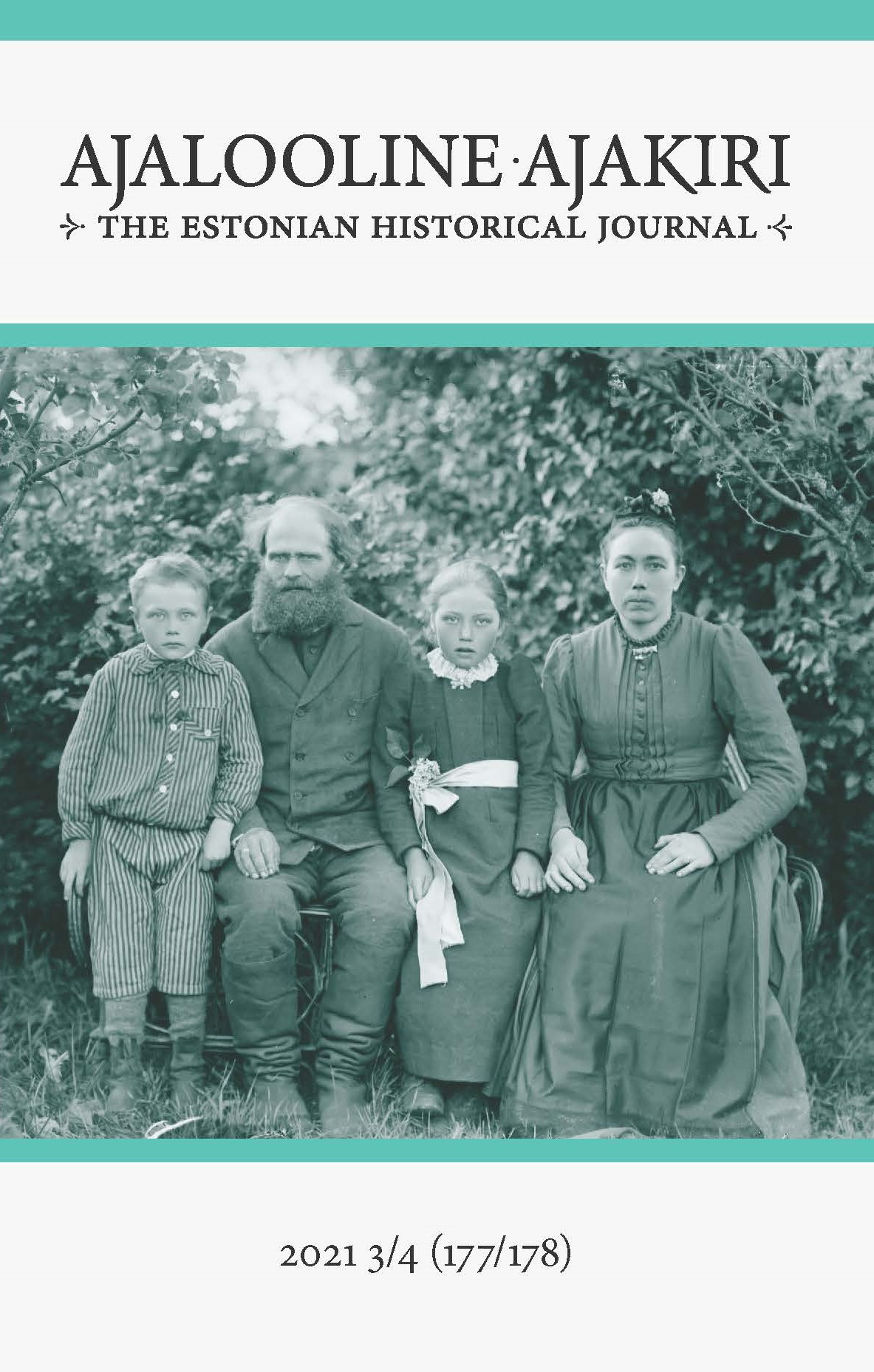The reception of Marxism and criticism of dogmatic Marxism in the Estonian area, 1905–16
DOI:
https://doi.org/10.12697/AA.2021.3-4.02Keywords:
Marxism, materialist conception of history, revisionist socialism, ideological debates, history of Estonian political thoughtAbstract
In Estonian historiography, the revolutionary year of 1905 has been described as a starting point for subsequent political changes in 1917 and 1918. Hence many authors have highlighted the importance of political development that led to the foundation of the first Estonian political parties in 1905. However, the ideological differentiation of Estonian political thought between the revolutionary years of 1905 and 1917 has been studied less. The aim of this article is to analyse the political debates on Marxist theory that took place in the Estonian area of the Baltic provinces from 1905 to 1916.
The leaders of the Estonian socialist movement first became acquainted with Marxist theory through German and Russian socialist literature. Since 1905, various texts by socialist authors were also available to a wider audience in Estonian. First and foremost, the works of German social democrats were published in Estonian. During 1910–14, the first volume of Karl Marx’s Capital was translated into Estonian. While it had often previously been argued that socialism benefits all oppressed people, Marxist ideology was now presented as a scientific theory that explained economic development and protected the interests of industrial workers in a class society.
The article claims that during the period from 1905 to 1916, recognised experts on Marxist ideology emerged among Estonian socialists. In addition to Marxist tactics, Estonian socialist authors discussed theoretical issues such as the material conception of history. In these discussions, the personal conflicts between Estonian socialists as well as their ideological disagreements became evident. More broadly, these discussions were shaped by earlier ideological debates among European socialists at the end of the 19th century and the beginning of the 20th century.
The article also argues that during the period considered, several Estonian left-wing thinkers questioned the validity of Marxism. Influenced by Bernstein’s revisionist ideas, these thinkers criticised Marxism as a one-sided and dogmatic ideology. They claimed that Marxism was just another theory with both strengths and weaknesses. However, Estonian social democrats who embraced Marxism as a scientific theory responded to such criticism and defended the materialist view of society.
The debates on Marxist theory considered here provide evidence of the ideological differentiation of Estonian left-wing political thought. From 1905 to 1916, numerous socialist texts in Estonian presented various approaches for understanding Marxist ideology. Thus, one can witness an intensified reception of Marxism in the Estonian area during that period. More specifically, these ideological debates reveal new facets of the political views of Estonian socialists who later affected the course of Estonian history as communist revolutionaries or as members of the Estonian Constituent Assembly.

